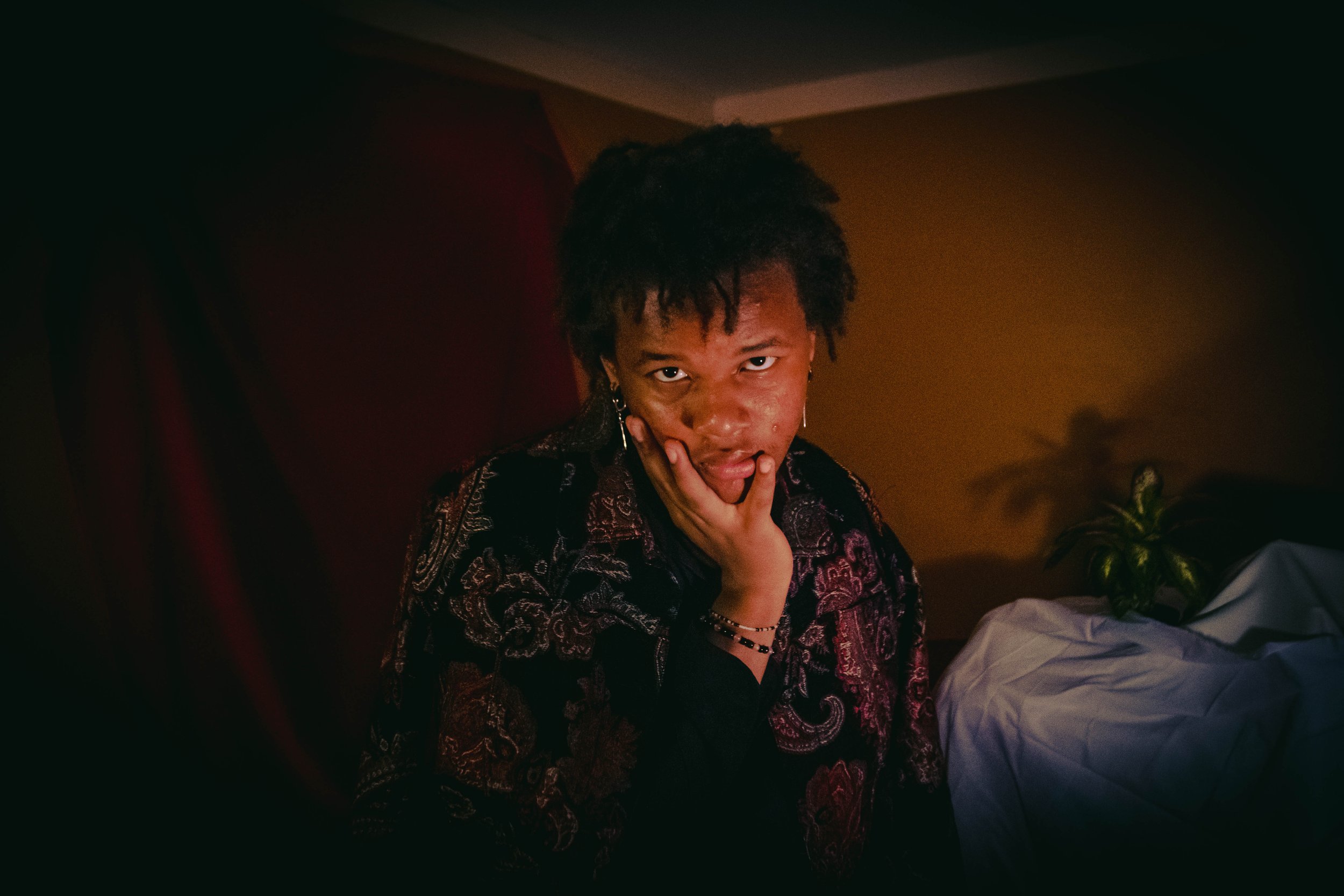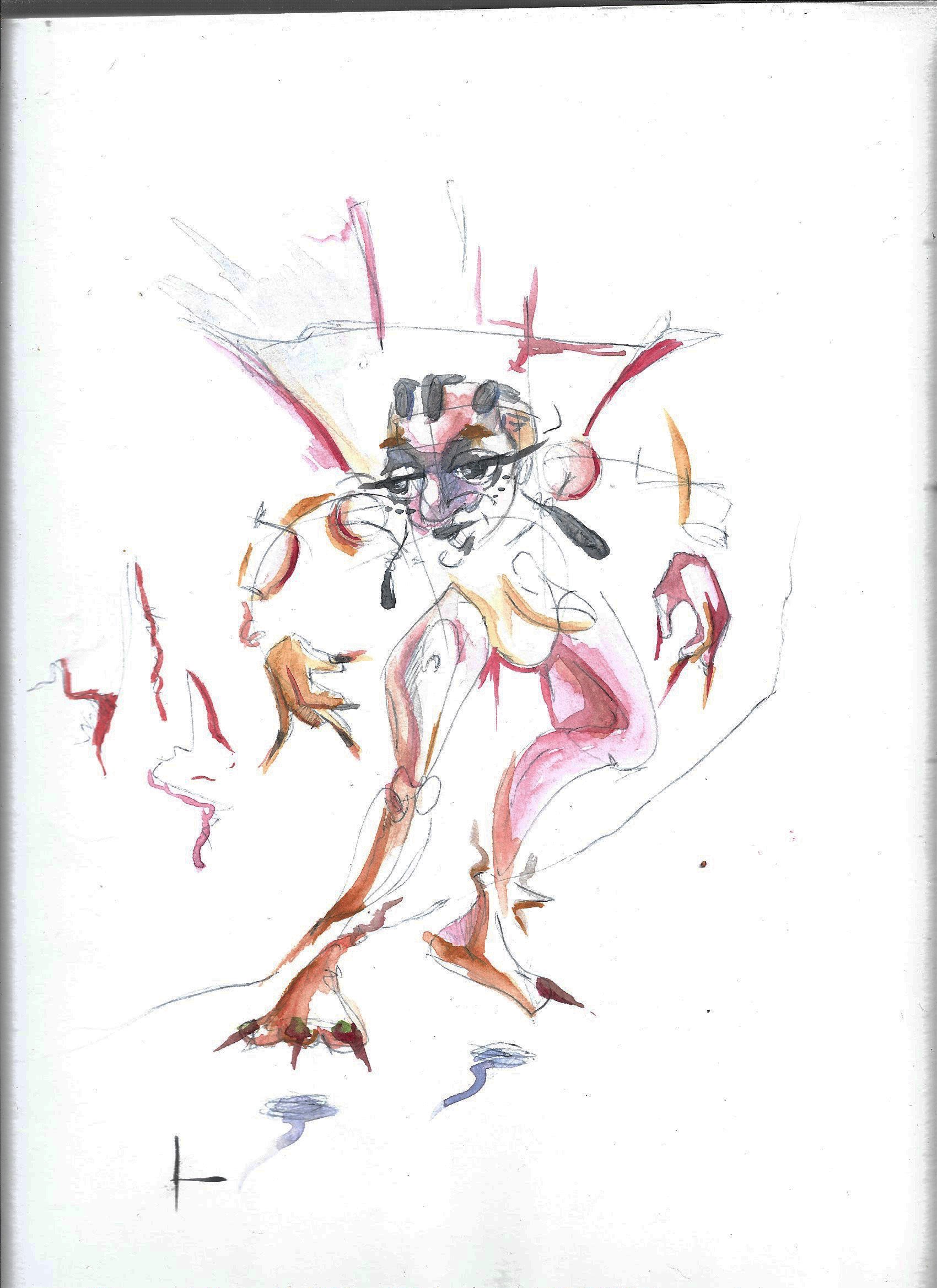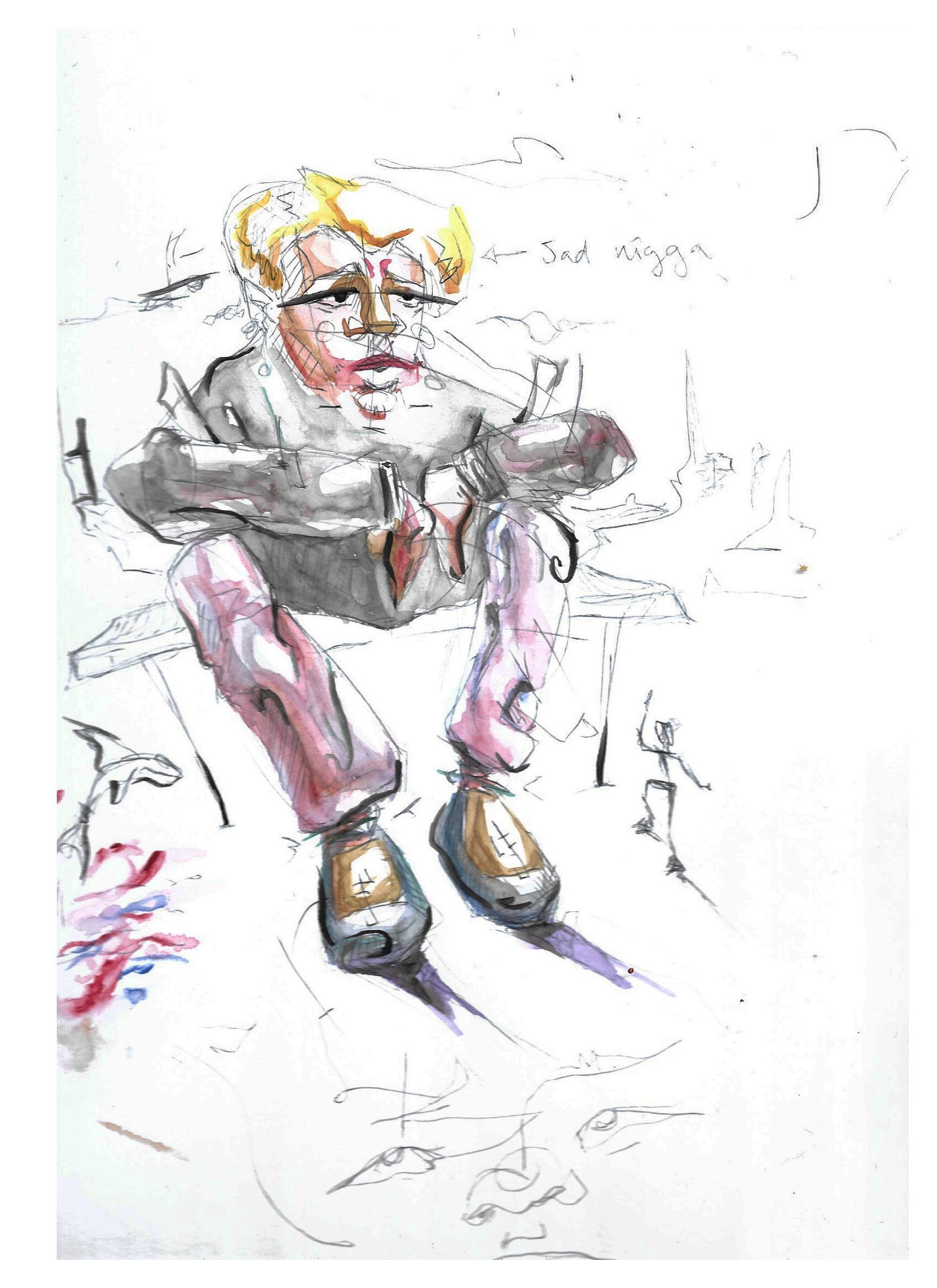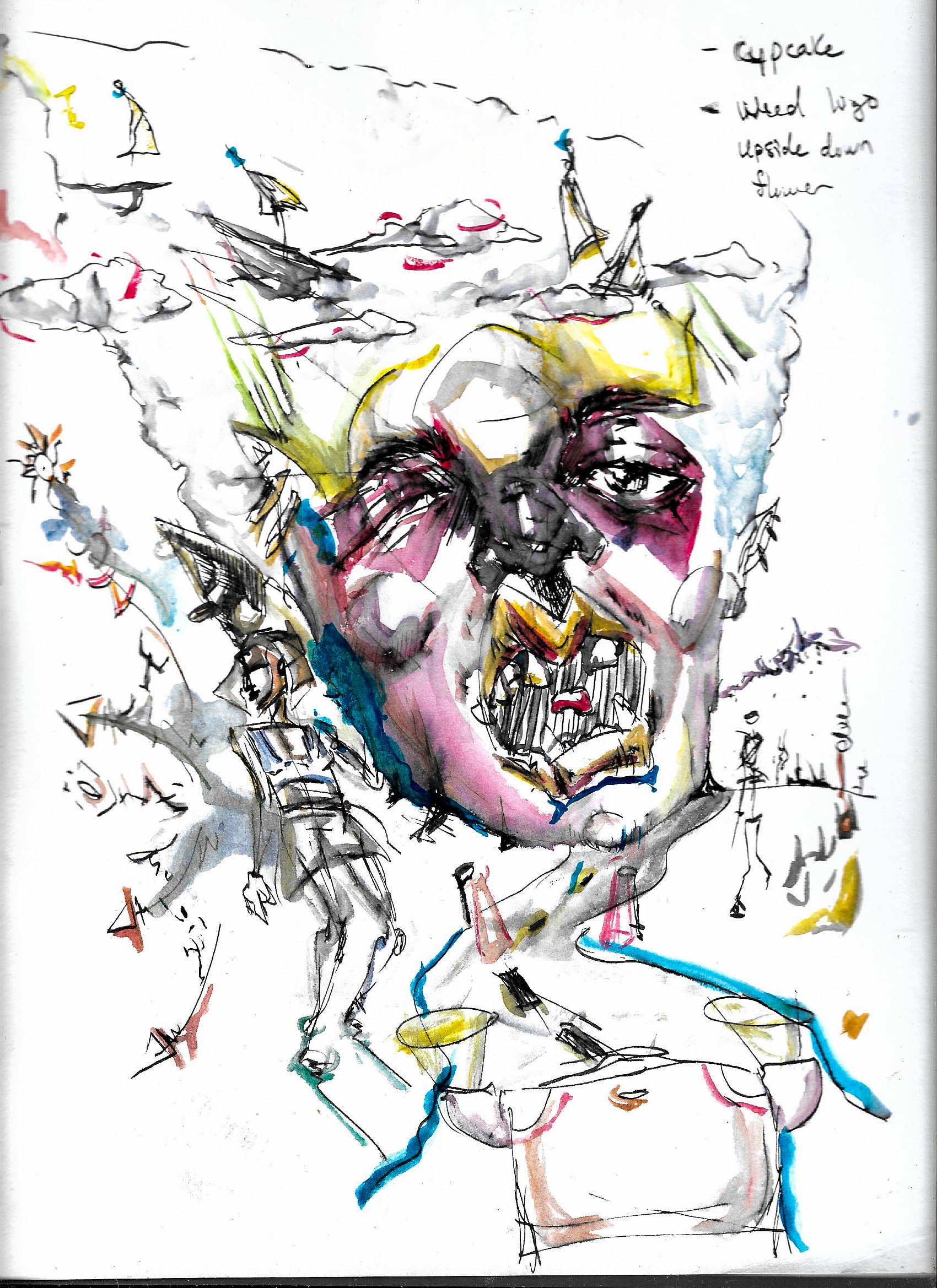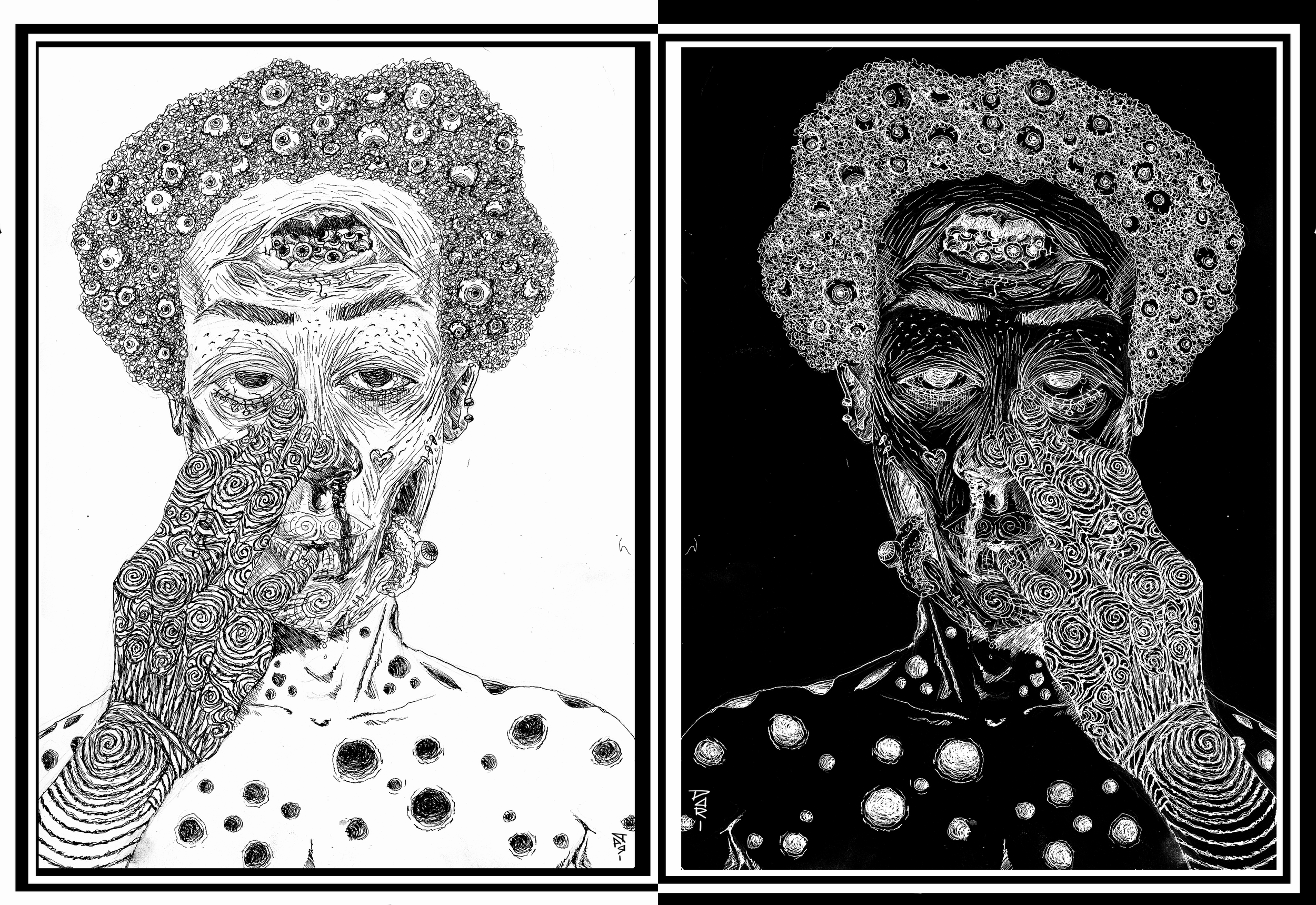Art After Liberation with Racquan
Note: This article was published in our OCT 2020 Issue on October 31, 2020.
"It's really silly, but I was just cutting my neighbor's grass and asked myself, 'How would I make a soundtrack to this?' And I started sampling everything I could think of that related to yard work," says Darius Racquan Foster. The boundless artist-creator from Bladensburg, MD, founder of Racquan Studios, describes the creative process behind their EP Suburban Landscaper, a serendipitous exploration into social theory, a mere sliver of their artistry. "I was really into drum 'n' bass and punk rock at the time, so I started drawing connections with the dirty breakbeats and the gritty sample of [a] lawnmower and paired them together to see what kind of conversation they would have. The whole project was just a big experiment for me that kinda led to me questions I didn't originally have in the beginning. Like I started asking myself about how our relationship with labor influences the value we see in ourselves and others."
Throughout the seven tracks, Racquan embodies and voices characters who personify the labor struggle. Who is the Suburban Landscaper? They're Black, non-binary, and self-employed. "They're the landscaper, the Suburban Landscaper. They moved to the suburbs and came to save everyone's lawn kind of thing. They're cutting the neighbor's yard. They're very famous in the neighborhood." In the EP's title track, one of the supporting characters, a neighbor, goes on a comically exasperated, misgendering rant about how excellent the Suburban Landscaper's mowing skills are. In the next song, "Self-Service", another neighbor is heard being stingy about paying the landscaper. "[T]he neighbors] stop paying them. Then they [the landscaper] ask, 'Why aren't you guys paying me? It's only 20 dollars each lawn.'" Protesting the penny-pinching attitudes of moneyed societies when it comes to paying laborers their worth, the song springs into an uptempo breakbeat as the Suburban Landscaper takes up arms with the residents. "And then there's like, a strike."
Known by their sobriquet, Racquan's artistic knack hatched back when things were much simpler. "I'm not sure exactly when I decided to take my art seriously, but I did notice a shift as I began to grow up. As a kid creating art was solely just for fun. But as I became self-aware of my surroundings and self, my art became more like a language for me than just a fun activity. I think the ability to imagine new worlds as a kid defines the range of art I make today." Now 19, the college student is studying for a bachelor's degree in fine arts at The Cooper Union while expanding their creative ability. Racquan's work includes portrait, abstract, and fine art photography; 2D sketches and composites; acrylic and screenprint paintings; drawings; logo work; music-producing and songwriting. Their wanderlust approach to art is "an act of liberation and curiosity. There is so much pressure to define yourself as an artist through style and practice, but I just want to break from that and allow myself to breathe."
As with Suburban Landscaper, all of Racquan's projects follow a common motivation: experimentation. Whether it is a charcoal rubbing created to symbolize past personal trauma or fine-art photography portraiting a friend, the fire sparks the same. "Some of my favorite projects come from an array of small unrelated questions I ask myself. I then use these small questions to create a new world where those questions are in conversation with each other." Through creating new worlds in their art–– one such example being "Wormville", a clay sculpture series where the tenant and landlord relationship is reimagined through the perspective of worms–– Racquan can contemplate why particular power structures exist in society. Other times, ideas come from asking a simple "what if." Once the questions lead to a definite theme and art form, Racquan needs no time to start creating. "I like to go right into it. I'll try and learn as much as I can not before I go through, but as I'm going through it."
Revealingly, ongoing self-discovery through adolescence for the young artist empowers who they are today as an artist and person. "I've had to do a lot of deconstruction internally and a lot of unlearning of trauma that I had growing up, which I'm still actively doing to this day. But I'm also trying to overcome a very intense inner critic that was created during high school. Right now, I am focused on being patient with myself." As the country faces concurrent crises of a largely unfettered pandemic, looming economic collapse, unblushing fascism, and overlapping climate disasters, Racquan sees the artist's role frankly: survive. "[S]urvive in whatever way you can and document your experience. I think there's too much of a pressure to produce and find answers now before we get to process what we are experiencing. Using our creativity to look out for each other and build community should be our focus right now so that we can create and reflect in the future."
Right now, Racquan is working on an extension of Suburban Landscaper, where the topics they feel were glossed over in the first EP can be meaningfully expanded on. "I want it to be a fuller and richer experience than the last EP I put out."
The best piece of guidance they've received rejects a mundane yet fundamental economic concept at the heart of Western society and capitalism. It reflects a sentiment that has only been growing in recent months as the pandemic all but upended our way of life, allowing many to envision a new world indeed. "[I]t is ok not to be productive all the time... I don't have to have everything figured out right now. I'm trying to learn to be kind to myself now, not for productivity’s sake but just because I deserve to be ok."


